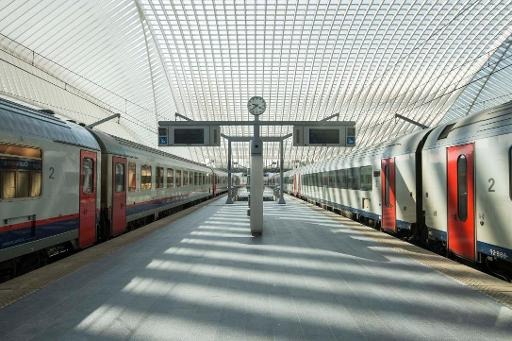The 24-hour strike will affect the railways from Tuesday at 10.00 p.m. and is to continue until the same time on Wednesday. Since last March the SNCB has ensured minimum service levels in the event of such collective action. The railway company is thus expecting half of the usual train numbers to operate, despite the simmering discontent.
During peak times in the morning and evening, the majority of IC (“InterCity”) trains - which link the large cities to each other – will operate, as well as a number of L (“Local”) and S (“Suburban”) trains. On the other hand, during slack periods, only a given number of IC trains will operate.
According to the SNCB website, at present thirteen IC trains should run with little or no disruption for almost the entire day on Wednesday. These trains are: Ostende-Brussels-Eupen, Blankenberge-Genk, Poperinge-Courtrai-Ghent-Antwerp, Charleroi-Brussels-Antwerp-Essen, Binche-Brussels-Turnhout, Brussels-Namur-Arlon, Tournai-Namur, Ostende-Courtrai-Brussels Airport, Courtrai-Brussels-Saint-Nicolas, Ghent-Brussels-Landen, Liers-Liège-Gouvy, Gouvy-Luxembourg and Brussels-Antwerp-Breda-Amsterdam.
Commuters are invited to consult the SNCB travel planner to know whether the trains on their routes are operating and to get the train times.
This is the third time that the so-called “minimum service” has been applied on the railway network since the system came into force last March. During the previous strike, which took place last July, around one in three trains were operating, compared to service at full capacity.
The railway sector is one of the sectors affected by the national strike, organised on Wednesday by the country’s three main trade unions (the General Federation of Belgian Labour, the French Confederation of Christian Trade Unions and the General Confederation of Liberal Trade Unions of Belgium). The call to come out on strike follows the breakdown of negotiations relating to a new inter-professional agreement (an “AIP”) for the period 2019-2020. Workers’ representatives are rejecting the limitation to 0.8% of the wage inflation increases during the next two years.
The Brussels Times

